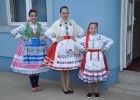History repeats or what Gabriela Gubová Červená writes about
We are witnessing that history often repeats. Government departments are changing social conditions are not stable and fates of people are affected by many factors. But humans survived through – they live, work, adapt, yet protect their own – what sets them apart from others, which gives them an identity, what they live for and what compels them to go forward.
We must understand the past so that we know and understand the future and anyone who undertakes to examine and explain the past takes over a great responsibility. Gabriela Gubová Červená took that boldly step two decades ago when she decided to study this department, history. She concluded her study with doctorate and on the October 8th 2015 her doctoral dissertation Slovaks in the Kingdom of Serbs, Croats and Slovenes 1918-1929 was presented in CIVS.
The executive directress of the CIVS, Katarina Mosnáková-Bagľašová greeted all those in attendance at the premiere of this publication, which came out of the press just two weeks ago. She welcomed the author of the publication, Dr. Gabriela Gubová Červená and Vladimir Valentík, director of Slovak publishing center, who is the co-publisher of the publication together with CIVS.
The book was published as the third volume edition of Doctoral dissertation, which was founded in 2011. To this day, in this edition two books were published Epic space and its two forms in modern Slovak novelistic by Emília Čelovská and Literary works of Ján Labáth by Zuzana Čižiková. After the two literary books the history book about Slovaks from Vojvodina was published.
Katarína Mosnáková Bagľašová pointed out that "this edition is very significant and important because this way we map which areas of culture are our post-doctoral alumni dealing with, and we contribute to the development and presentation of the various disciplines of Vojvodina Slovaks and simultaneously affirm and support our young scientists and experts from various fields of culture. "
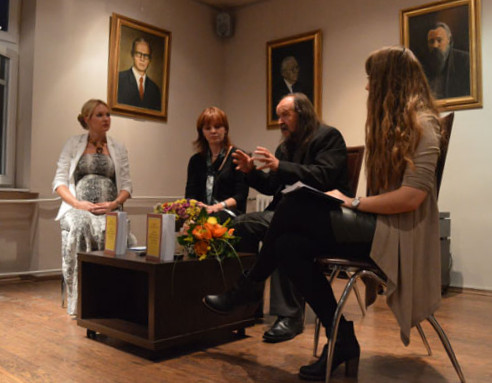 |
The soiree was hosted by Anna Margareta Valentová, who also read passages from the presented book.
Director of the Slovak publishing center, Vladimir Valentík presented the book Slovaks in the Kingdom of Serbs, Croats and Slovenes 1918 – 1929 from his point of view and noted its significance for Slovaks from Vojvodina today, who seem to be incorrigible based on examples from the history and texts from the publication, and therefore this book offers them an insight into the future based on the facts of the past.
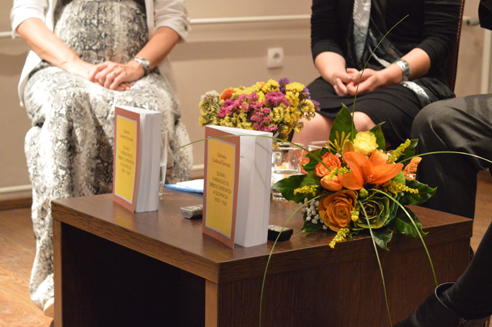 |
We present an excerpt from the book:
During the entire interwar period, the Slovaks were loyal citizens of the Kingdom of SCHS and then Yugoslavia and respected the Karadjordjević dynasty. From the new Slavic state they expected very much. They trusted Serbian politicians, especially those from the former monarchy, that they would support and help in the implementation of the Slovak national rights. They believed that Slavic state would be "helpful and better" to the Slavic nations that supported its creation. Leading Slovak politicians throughout this period trusted and relied on the Serbian politicians. The majority of the Slovak people quickly sobered up from the "Soulful and madness" of creating a new state. They recognized the cruel reality that even in this State they will constantly have to fight for their rights and demand them, etc.
At the evening programme young musicians Juraj Súdi jr. and Emília Kováčevá played the song Panis Angelicus by César Franck on the piano and violin. Finally the author of the presented book Gabriela Gubová Červená said a few words about the process of making the publication, the course of her doctoral studies and steps to the goal, which was to defend a doctoral dissertation and a its book publication.
The executive directress of CIVS Katarina Mosnáková Bagľašová handed her copies of the book and the congratulations were joined by visitors and guests, among whom was also the chairperson of the SMS, Katarína Melegová Melichová.
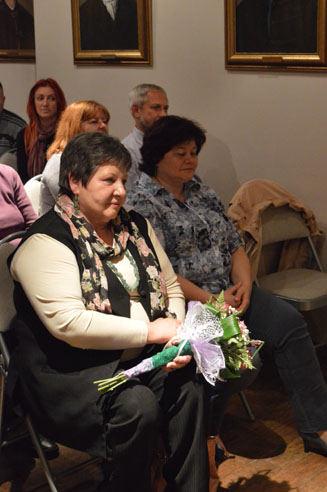 | 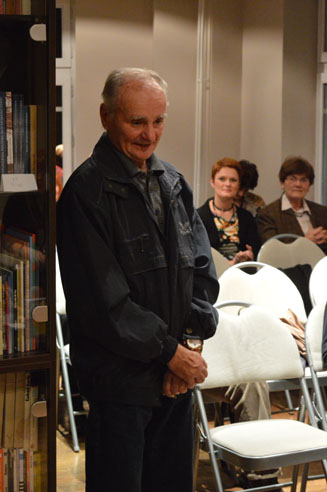 | 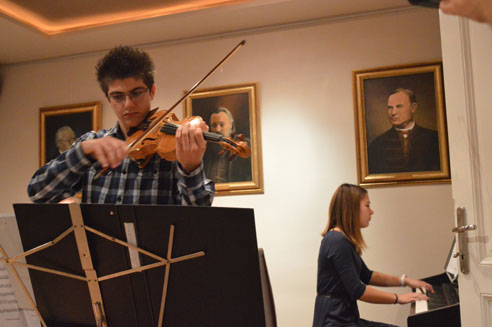 |
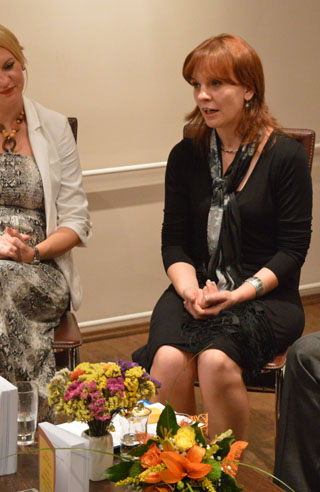 | ||
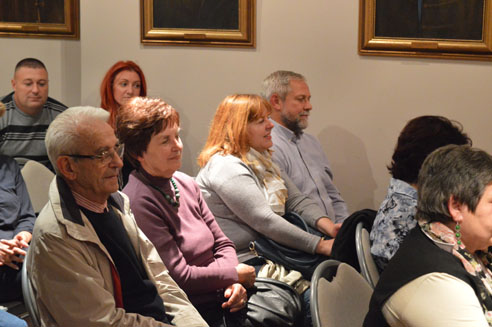 |  | |
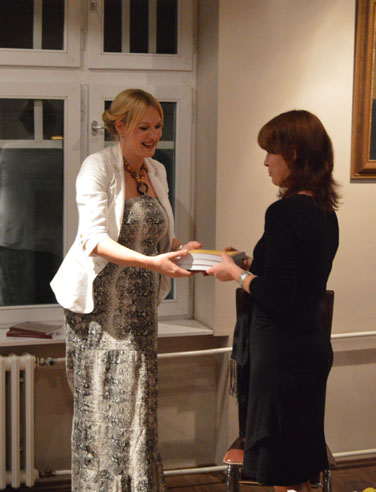 | 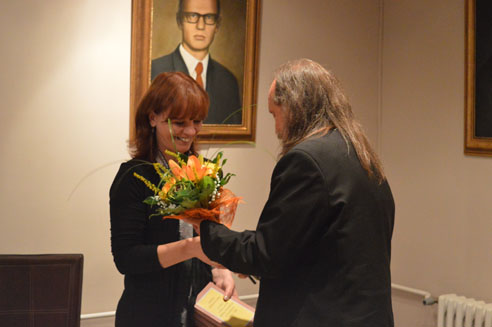 | |
They say that "who controls the present, controls the past - Who controls the past, controls the future." (G.Orwell) Our wishes for Dr. Gabriela Gubová Červená are that her book of history helps the readers to look into the future and as far as possible, to know how to affect it to the right direction according to past examples.










